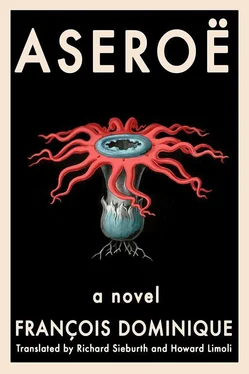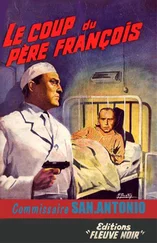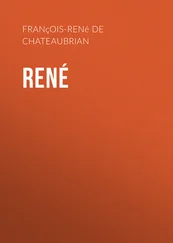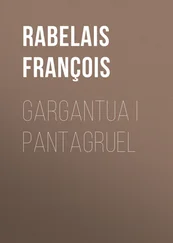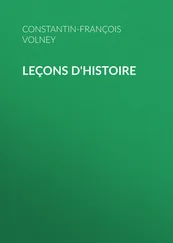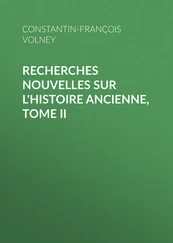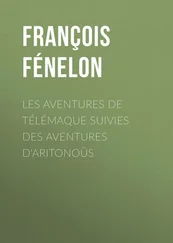François Dominique - Aseroë
Здесь есть возможность читать онлайн «François Dominique - Aseroë» весь текст электронной книги совершенно бесплатно (целиком полную версию без сокращений). В некоторых случаях можно слушать аудио, скачать через торрент в формате fb2 и присутствует краткое содержание. Город: New York, Год выпуска: 2020, ISBN: 2020, Издательство: Bellevue Literary Press, Жанр: Современная проза, на английском языке. Описание произведения, (предисловие) а так же отзывы посетителей доступны на портале библиотеки ЛибКат.
- Название:Aseroë
- Автор:
- Издательство:Bellevue Literary Press
- Жанр:
- Год:2020
- Город:New York
- ISBN:978-1-942658-78-8
- Рейтинг книги:5 / 5. Голосов: 1
-
Избранное:Добавить в избранное
- Отзывы:
-
Ваша оценка:
- 100
- 1
- 2
- 3
- 4
- 5
Aseroë: краткое содержание, описание и аннотация
Предлагаем к чтению аннотацию, описание, краткое содержание или предисловие (зависит от того, что написал сам автор книги «Aseroë»). Если вы не нашли необходимую информацию о книге — напишите в комментариях, мы постараемся отыскать её.
Aseroë — читать онлайн бесплатно полную книгу (весь текст) целиком
Ниже представлен текст книги, разбитый по страницам. Система сохранения места последней прочитанной страницы, позволяет с удобством читать онлайн бесплатно книгу «Aseroë», без необходимости каждый раз заново искать на чём Вы остановились. Поставьте закладку, и сможете в любой момент перейти на страницу, на которой закончили чтение.
Интервал:
Закладка:
I was asked to leaf through all the pages, without skipping a single one. I admired the typography of the text, each chapter head individually composed for each Dialogue—and of course the black plates. I stopped at the last page, which was immaculate. “Keep turning, keep going to the very end!” On the verso of the last page, my friend pointed out a form that was scarcely visible, a tiny figure of Vanity embossed into the white tissue of the page: a crowned skull, and these mottoes, which I read at an angle beneath the dim beam of the lamp:

Giordano Bruno was clearly connecting Death (which “levels kingdoms,” posing the funereal violence of the spade against the pride of scepters) and the eminent Eye, which sees “all high things.” The second phrase, borrowed from the Bible (Job 41:34) primarily designates the invisible gaze of the Most High, but in another (and far more disturbing) reading, DEATH becomes the subject of the infinitive TO SEE. If Death allows access to the sight of the Sublime, or indeed if Death itself constitutes this sovereign gaze, the final motto (almost lost in the fibrous white of the page) suggests to the attentive reader a meditation on the Hidden Book of Averroës.
My host affirmed that Bruno, motivated by his quest for the alchemical Great Work (for which the scepter and the holly are the emblems, as well), wanted to place the reader on the path toward the Great Secret…. This made me quite uneasy, for it seemed I suddenly was losing my ability to read and that the embossed mottoes themselves were staring at me, drawing me toward the abyss.
When I was about to close the book, my host placed his hand on mine. “François, you haven’t finished reading.” He gently withdrew from the vellum volume a sheet the size of a quarter of a page, a black plate even more admirable than the others. I noticed that its delicate white lettering was arranged like the stars of Sagittarius: NOX NOS INTUERIT— night observes us .

Rue Lucinge. That April night in Lausanne pursued me beyond my actual encounter with the book, or indeed with the plates with no margins whose black fiber opened out onto the very night sky itself. I searched out the starred letters, which might reveal Bruno’s secret to me. A disturbing sentence came to me: “Death’s gaze is swifter than Light.” If someone had such a gaze at his disposal, wouldn’t he therefore have sped back to the beginning of Time? After which, deprived of Light, wouldn’t he be then returned to the Night from whence he had emerged? He wouldn’t exist, or at least not yet….

Each time we are presented with someone whom we can love, it seems to me that the raptness of our attention snatches her away from her mortality: we are seeing her for the first time, her face smothered in kisses. Isn’t this what the onset of Time really involves? There in Lausanne, on rue Lucinge, I dismissed all these worrisome thoughts. The darkened windows, the frigid houses, the Swiss tameness of the place all struck me as fake. I had found myself there by mistake, pursuing a false illusion. But then I saw a woman passing by. She turned to me and smiled.

I remember she was very beautiful. Within myself I was singing: Let’s follow this angel, let’s finish the night.
What does the woman Lena have to do with this story? Is she here to disprove me? To cast a spell on some obscure book? To give way to dawn? On rue Lucinge, smiling and weeping at the same time, Lena led me to her home. Once there, she had me go upstairs, to no purpose. I spoke to her of Bruno and of the Ash Wednesday Supper . “The poor man,” she said, oblivious to his fiery end. She told me the sad, uneventful story of her life. I listened to her as she spoke and whimpered like a child. As I got up, she asked me, “So do you want to?” “No,” I said, “it’s not worth our while.” “Too bad,” she replied. As I left her home, she uttered the following sentence, which might have been prompted by her state of fatigue or intoxication: “Night is the graveyard of names.”
Two days later in a Lausanne bookstore, I came across a volume devoted to the Orphics. I read the following words, which are rather different from those of Hesiod, which I have never forgotten:
Black-winged Night was seduced by the Wind and in the Darkness she produced a silver egg. From this egg sprang Eros—whom some call Phanes—who set the Universe in motion.
10

Aseroë
THERE WAS THIS MAN—the simple truth of the matter is that I was in his way and he wished me no harm. I had bumped into him, and he swore at me and shoved me against the wall of the Jardin de l’Arquebuse in Dijon. That’s the way it was; I would have done the same if he had been the one blocking my way. He shouldn’t have stared at me. Stared at me is perhaps too strong a phrase, since he was looking at the wall. As far as he was concerned, I didn’t exist. The look he cast at me was without any concern or disdain for me; it was simply indifferent, and for the first time in my life I found this intolerable. In fact, it felt like torture. It’s not that I’m oversensitive: had he thrown himself in my arms, I would not have tolerated it; even too insistent a look on his part would have annoyed me. But I felt my privacy had been violated by the very mindlessness of his gaze.
A frank indifference seems to me the best policy when encountering a passerby, but something had changed on that December evening. It had nothing to do with either of us; it was a product of the changing times, of which I was only dimly aware. A major event had taken place without my so much as noticing it—unless the nature of this event was such that the horror of its occurrence had insidiously disappeared, once one’s attention had been diverted from it.
I’ve sometimes run into a friend after a long absence and not recognized him. The passage of time tends to erase people’s earlier features, but this is not what frightens me. What I am attempting to describe is perhaps so heinous and so harmful that I would be better off not mentioning it at all. The delivery of certain looks and certain words that involves intricate acts that are sucked up by the cold or buried by the grave. Are such acts a way of carrying death within oneself, before it actually arrives? Are they based on ignorance of the fact that death will occur come what may and in its own good time? What does it mean “to carry death within oneself”? Have all distinctions collapsed? Do death and life no longer differ? Have they become interchangeable?

That December evening, near the Jardin de l’Arquebuse, the following sentence had taken shape in my head. I repeated it over and over without understanding it: it was neither a proverb nor a sudden insight, nor was it one of those arresting thoughts that come to mind while one is just strolling around:
Many are those who give life without an ounce of tenderness.
And then nothing more. I was talking to myself. I saw a man running and he shoved me against the wall, swearing aloud. I wouldn’t mention this insignificant fact if the man hadn’t turned, if I hadn’t noticed his face near mine, if I hadn’t immediately feared that the worst was being called down upon me. Death is less frightening than the ill will of some ordinary man, but here I was finding myself face-to-face—in the course of a single interminable moment—not with death or with a random stranger, but with a creature who struck me as absolutely inhuman.
Читать дальшеИнтервал:
Закладка:
Похожие книги на «Aseroë»
Представляем Вашему вниманию похожие книги на «Aseroë» списком для выбора. Мы отобрали схожую по названию и смыслу литературу в надежде предоставить читателям больше вариантов отыскать новые, интересные, ещё непрочитанные произведения.
Обсуждение, отзывы о книге «Aseroë» и просто собственные мнения читателей. Оставьте ваши комментарии, напишите, что Вы думаете о произведении, его смысле или главных героях. Укажите что конкретно понравилось, а что нет, и почему Вы так считаете.
